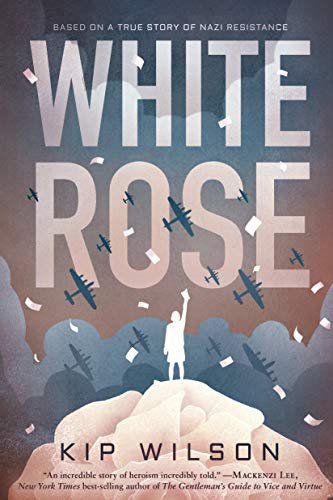White Rose
This is the story of Sophie Scholl, her brother Hans, and their closest friends, all founders of the White Rose movement—one of the few German resistance groups to protest the genocide policies of the Third Reich.
Wilson tells the story in medias res starting with the Gestapo’s arrest of Sophie and Hans in 1943. The author carefully weaves a story of Sophie’s awakening from age eleven, as a leader in the Nazis’ League of German Girls, to age twenty-two, as a university student and founding member of White Rose.
Sophie’s perspective appears as short, narrative poems as well as those from the perspective of Sophie’s interrogator, lawyer, and judge. Most importantly, letters from Sophie’s brother Hans, a medical student serving in Poland, and her boyfriend Fritz, an army officer stationed in Russia, are interspersed throughout the piece. Each man witnesses the enslavement and systematic murder of Jews and Russians, and their letters reinforce Sophie’s determination to stand against the Nazis.
This story is an enduring reminder of the importance of separating an individual from her government, but never from her humanity and responsibilities. While on the surface Sophie appeared to be a carefree student, she was an activist who refused to look the other way as her neighbors were murdered. Sophie risked everything to distribute leaflets throughout Germany denouncing murder, apathy, and blind allegiance.
As many of the ideas that once brought the Nazis to power resurface in American communities, Sophie represents the unyielding power of free speech. She is brought to life by a poet who understands, respects, and trusts her young readers. While frugal with her words, Wilson is generous and full of love as she paints a detailed picture of Sophie’s complex, bold, beautiful, and enduring spirit. Highly recommended for ages 12 & up.










